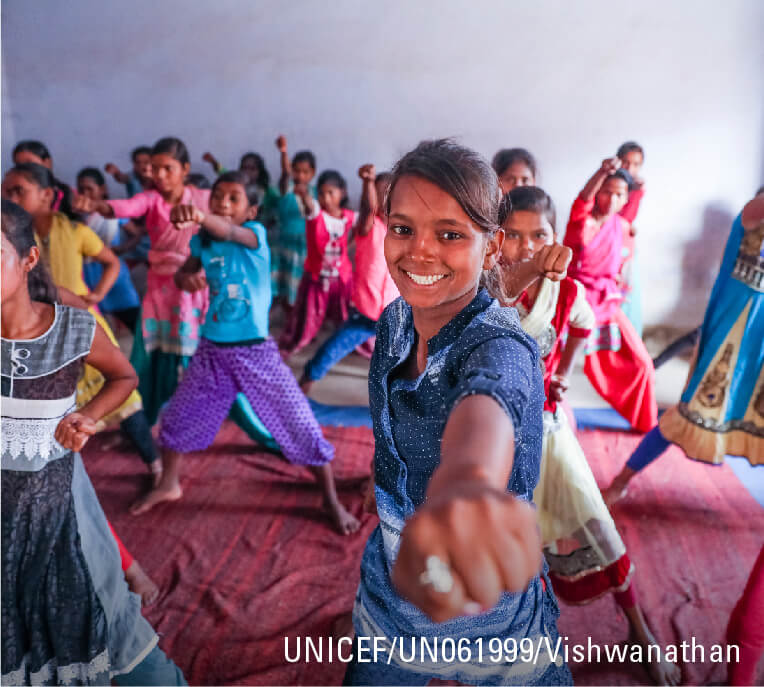
Institutional care refers to the care, protection, rehabilitation and social reintegration of children in difficult and vulnerable circumstances in an institutional setting under the guidance and supervision of child care professionals whose actions are governed by the standards as prescribed by the law of the land. The Juvenile Justice Act 2015 sets standards of care and protection for children for different types of child care institutions. It is important to note that the focus of child care in India as well as in many countries across the world has shifted from institutional to family or community-based child care, as is recommended by international instruments on child care and researches on the issue. This change in approach is reflected in India’s National Policy for Children 2013, which has identified one of its key priorities as ensuring a range of care options that are non-institutional, family-based and community-based. (Standards of Care in Child Care Institutions, Udayan Care and UNICEF India Country Office, 2016)
RESOURCES
-
Mapping Long-term Outcomes of Institutionalization for Children in Need of Care and Protection (CNCP) in India
Make a Difference , 2019This research maps the long term outcomes of institutional care on children in India and is undertaken by Make A Difference; a non-profit working with children in need of care and protection (CNCP) across 23 cities in India with the long term aim of driving transformative life outcomes on par with the middle class for all children in care. Approximately 35m children are estimated to fall into the CNCP category, with nearly half a million registered in institutional care and potentially half a million more in institutions that are yet to register as per the 2015 amendment to the JJ Act, which is still only slowly percolating into local awareness. The goal of this research is to challenge or validate the assumptions that underpin existing impact and change-focused solutions; to combat the complete dearth of data and lack of meaningful information available in the sector about the longer-term effects of institutional care on children in India, and to enable programmes both within and outside of Make A Difference to be designed on the back of benchmarked and trackable outcomes.
-
Social Investigation Report, Form 22 of Juvenile Justice (Care and Protection of Children) Act 2015 with addendum
Miracle Foundation, 2018The purpose of the Social Investigation Report (SIR) is to assess the child and family situation to determine if reunification or alternate family placements are feasible. The questions, as mentioned in the SIR needed to be categorised under the well-being domains of the child and family along with some additional points. The additions provide a holistic view of the child's situation and help in effective planning and decision regarding placement and well-being of the child. Therefore Miracle Foundation India has made necessary additions (in red) SIR forms without deleting any point from the existing SIR forms in Juvenile Justice (Care and Protection) Act 2015. These guidelines will be particularly useful to the Social Worker/Probation Officer who prepare plans and to the District Child Protection Units (DCPU) which monitor them. Both tools have been widely used by the Social workers in Miracle mentored Child Care Institutions (CCI) since 2018, and they found a transformational difference in the child and family assessment with a crisp and clear intervention plan. It helped them in making a decision about the child through the case management process in consultation with the child and family members. Under a joint partnership with the State Departments, UNICEF and Miracle Foundation India, the use of SIR with the addendum has been started by some DCPU officials in Gujarat, Jharkhand, Bihar and Maharashtra. Most of the participants have shared feedback with Miracle team that they practically found the SIR addendums useful reference to support them in conducting and authentically filling up the SIR form for children.
-
INDIVIDUAL CARE PLAN, Form 7 of Juvenile Justice (Care and Protection of Children) Act 2015 with addendum
by Miracle Foundation, 2018Every child is unique and has a unique set of needs. Individual care plan ( ICP) is required for understanding and assessing the progress of the education, vocational training, physical and mental health needs of a child while in the care system. It was realised that in the absence of any guidelines related to areas of concerns and proposed interventions, most of the domains remained either empty or checked as not applicable in the ICP form. The additions provide a holistic view of the child's background and help in effective planning and decision regarding placement and well-being of the child. Therefore Miracle has made necessary additions (in red) in the ICP form without deleting any point from the existing ICP form in Juvenile Justice (Care and Protection) Act 2015. These guidelines will be particularly useful to the Social Worker/Probation Officer who prepare plans and to the District Child Protection Units (DCPU) which monitor them. The ICP form with addendum by Miracle Foundation India has been widely used by the Social workers in Miracle mentored Child Care Institutions (CCI) since 2018, and they found a transformational difference in the child and family assessment with a crisp and clear intervention plan. It helped them in making a decision about the child through the case management process in consultation with the child and family members. Under a joint partnership with the State Departments, UNICEF and Miracle Foundation India, the use of ICP with the addendum has been started by some DCPU officials in Gujarat, Jharkhand, Bihar and Maharashtra. Most of the participants have shared feedback with Miracle team that they found the ICP addendums useful reference to support them in conducting and authentically filling up the ICP form for children. Udayan Care referred to the Miracle Foundation India addendum to the ICP form for preparing Individual Care plan (ICP) guidelines for children in the age group of 15 to 18 years for their After Care Model Program in Bihar.